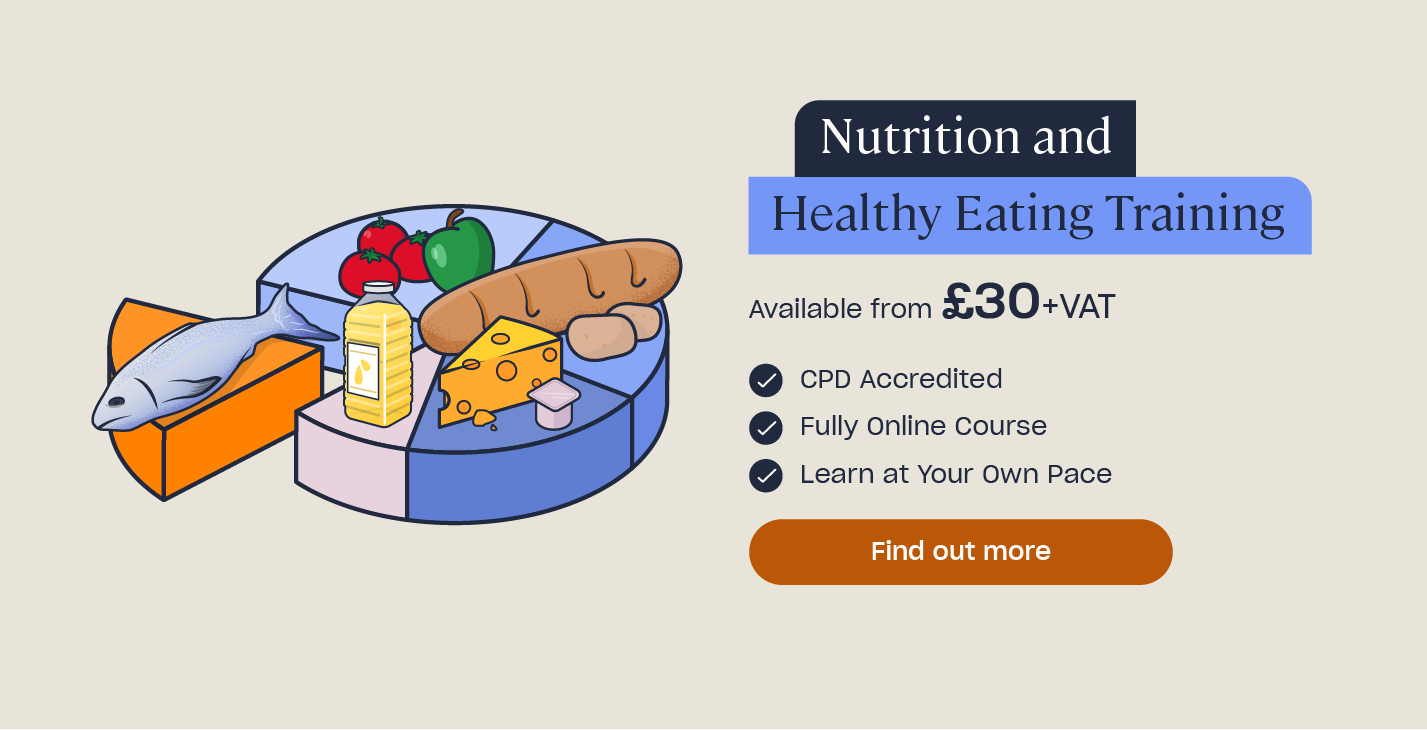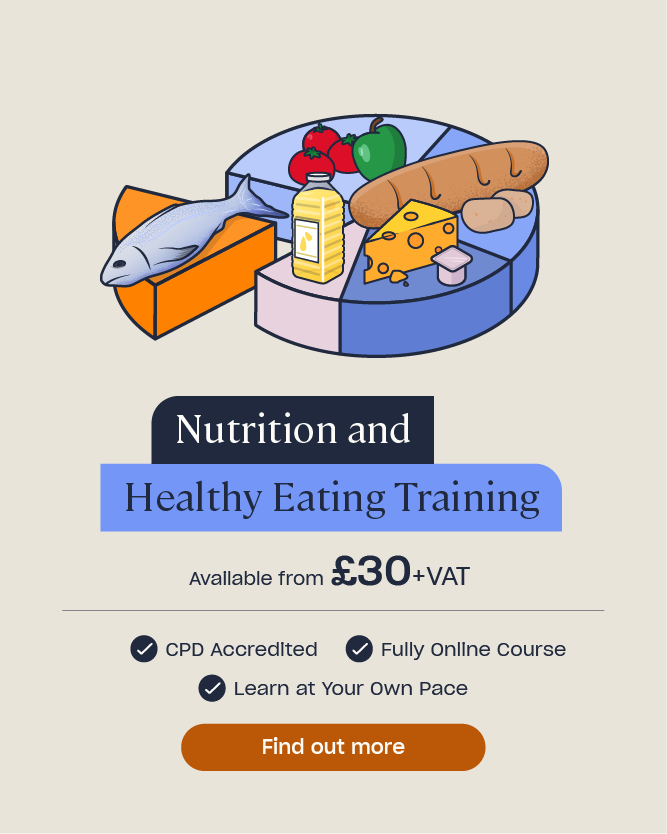A Vegan Grocery List – 50 Ideas for a Healthy Vegan Kitchen
Vegans do not eat or use any animal products or animal by-products. This includes meat, fish, poultry, eggs, dairy products, honey, fur, silk, wool, leather and various cosmetics derived from animal origin. However, just because the vegan diet excludes certain foods, it doesn’t mean that it has to lack essential vitamins and minerals. The key to a nutritional vegan diet is variety: eating plenty of fruit, vegetables, wholegrain, nuts and seeds to keep your nutritional balance in check.
Looking for a few ideas for your vegan shopping list? Here are our top 50 healthy vegan foods that you should stock your kitchen with next time you do the weekly shop to ensure a balanced diet.
Protein

Protein is essential for helping the body to build new cells, maintain tissues and create enzymes. It also helps to keep you full and so is a vital part of the vegan diet. However, the nutritional content of plant-based proteins is not as high as those of animal origin and so plant-based proteins are often classed as being ‘low quality’. You can improve the quality of the protein you eat by combining foods together, such as peanut butter on toast or soy milk and cereal. Be sure to add the following protein-rich products to your cupboard:
- Soya beans – these are the only ‘high quality’ plant-based protein and are also a great source of omega 3, folate and calcium.
- Lentils – lentils are a legume rich in protein, fibre and B-vitamins which help to lower cholesterol and balance blood sugar levels.
- Chickpeas – a legume high in protein, fibre, magnesium and iron which can help to reduce cholesterol and prevent cardiovascular disease.
- Tofu – one serving of tofu contains around 10g of protein, as well as good amounts of calcium and iron.
- Peas – as well as protein, peas contain high levels of vitamin C and have key antioxidant and anti-inflammatory benefits.
- Peanut butter – packed with protein and antioxidants, peanut butter helps to keep you feeling full.
- Almonds – almonds are high in protein and healthy monounsaturated fats, which can help to reduce the risk of heart disease. Choose whole almonds, almond butter or almond milk.
- Rice – rice is a store-cupboard staple and provides you with carbohydrates as well as protein, helping to keep you sufficiently satiated.
- Soy milk – due to the absence of lactose, many soy milks are fortified with calcium and B vitamins to ensure a good nutritional balance.
- Potatoes – as well as protein, potatoes are an essential carbohydrate, providing you with a source of energy as well as helping to keep you full.
Fats

Fats are a source of energy and add flavour and texture to food. The body needs healthy fats to make tissue and hormones, so it is essential that you include them in your diet. Choose these vegan-friendly fats for your cupboard at home:
- Olive oil – a monounsaturated fat, olive oil is a healthy fat that contains lots of antioxidants.
- Margarine – margarine is made by combining vegetable oils and usually contains added vitamins A, D, E and K.
- Avocado – avocadoes are known to contain high levels of fat, but they also have good anti-inflammatory benefits and can help lower the risk of heart disease, so they’re definitely worth adding to your diet.
- Coconut – although coconut is a source of saturated fat, it shouldn’t be dismissed as it also contains manganese and copper, needed for strong bones, processing cholesterol and the forming of red blood cells.
Calcium

Calcium is mainly used by your body to strengthen bones and teeth but it also contributes towards muscle contraction, nerve cell communication and controlling blood pressure. To be absorbed by the body, calcium needs an adequate supply of vitamin D, so try and eat the two together for the best results. Include the following vegan sources of calcium in your weekly shop:
- Fortified orange juice – as well as being rich in vitamin C, many brands of fresh orange juice contain added calcium and vitamin D to help you boost your daily intake.
- Kale – kale is a leafy green vegetable that is a good source of calcium. It also contains high levels of vitamin K, needed for healthy blood, bones and kidneys.
- Okra – okra is an African plant with edible green seed pods that are rich in vitamin C, vitamin A and folates.
- Tempeh – tempeh is a soy product made by fermenting soy beans and is often known as a ‘super food’. It’s also high in protein and fibre, making it a staple ingredient for many vegans.
- Broccoli – broccoli is rich in vitamin C and vitamin A, helping to maintain your eyesight and reproductive system as well as promote healthy cells.
- Sesame seeds – sesame seeds are a great source of many essential minerals, including calcium, iron, manganese, zinc, magnesium, selenium and copper, as well as about 25% of the recommended daily intake of folic acid.
- Fortified non-dairy products – you can still get your recommended intake of calcium without a need for cow’s milk. Try an alternative such as plant-based soy milk, almond milk for a nuttier flavour or oat milk. Non-dairy milk and yoghurt are fortified with calcium to give them the same health benefits as dairy-based products.
To find out more about non-dairy milk, check out our Guide to Alternative Milks in which we tested a range of nut and plant-based drinks and found out which are the worst offenders for curdling in tea & coffee!
Vitamin D
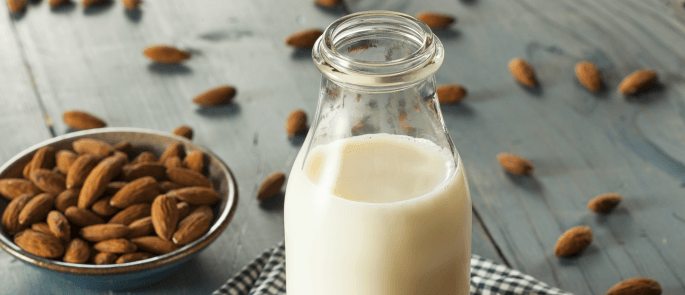
Vitamin D is used by the body to absorb and use calcium and promote strong bones and teeth. The best source of vitamin D is sunlight – just 20 minutes per day is enough. The use of vitamin D supplements is a good alternative for those living in less-sunny climates. Consider adding the following vegan products to your store cupboard too:
- Fortified soy milk – vitamin D is hard to come across in the vegan diet, so products fortified with vitamin D become essential.
- Rice milk – rice milk is low in fat and often quite sweet-tasting, making it ideal for baking. It’s also usually fortified with vitamin D, vitamin A, vitamin B12, iron and niacin.
- Mushrooms – mushrooms that have been exposed to sunlight or UV light generate vitamin D. However, most mushrooms are grown in the dark and so do not contain the vitamin, so be sure to do your research before purchasing.
Iron

Iron is important in the diet, particularly amongst women, for the formation of red blood cells. It’s also one of the easiest minerals for vegans to obtain from their diet and should be combined with vitamin C where possible to aid absorption. Choose the following healthy products in your weekly shop to increase your iron intake:
- Kidney beans – kidney beans are high in fibre and protein as well as iron. They are also low in calories and are useful for adding bulk to meals.
- Black-eyed peas– half a cup of black-eyed peas contains 1.2mg of iron, as well as high amounts of potassium, protein and fibre.
- Spinach – another dark green leafy vegetable, spinach contains a large amount of vitamin A as well as iron, needed for healthy eyes, skin and bones.
- Prune juice – a cup of prune juice is enough to provide you with 17% of your daily iron intake, as well as overly 20% of your daily potassium needs. Its dark colour also means that it is rich in antioxidants.
- Tahini – tahini is a paste made from sesame seeds that is rich in minerals and vitamins, helping to promote healthy cells and healthy skin. Use it in a stir fry or in a salad dressing.
- Bok choy – this Chinese cabbage, as well as containing iron, provides you with more than 100% of your recommended intake of vitamin A.
- Raisins – raisins are a great source of minerals – just 100g provides you with 23% of your daily iron requirements.
- Wholemeal bread and flour – wholemeal bread is an easy way to add iron to your diet. Pair it with baked beans for an extra hit.
- Spring greens – spring greens are packed with iron, potassium, calcium, fibre and vitamins C, E and K, making them a nutritional addition to any meal.
- Quinoa – quinoa is a grain high in iron. Use it as an alternative to rice.
- Pumpkin seeds – just 100g of pumpkin seeds will provide you with over 80% of your daily iron needs, as well as a good amount of magnesium, zinc and omega 3 fatty acids.
- Pine nuts –pine nuts contain iron, manganese, zinc and vitamins E and K, so are great as a nutritional mid-afternoon snack.
Omega 3
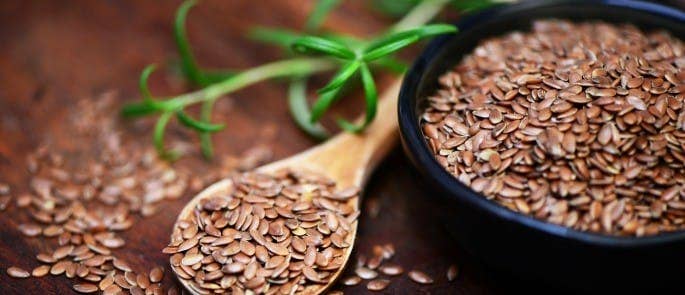
Omega 3 is an essential fatty acid, needed to keep your brain and cells healthy. It’s not produced naturally by the body, so obtaining omega 3 from an outside source is essential. Omega 3 is often found in oily fish, but here are some good vegan alternatives:
- Flaxseed – every tablespoon of flaxseed contains around 1.8g of beneficial omega 3s.
- Canola oil – canola oil is low in saturated fat and high in both omega 3 and omega 6.
- Walnuts – walnuts are also high in omega 3, so try having a handful as a snack between meals.
Vitamin B12

Vitamin B12 is produced by bacteria and is usually found in soil and water – things that you often wash off your fruit and vegetables. However, vitamin B12 is essential for making healthy red blood cells and enabling the transmission of impulses between nerve cells. Try these vegan vitamin B12 options:
- Fortified nutritional yeast – nutritional yeast is yeast that has been deactivated and had vitamin B12 added to it. It can be used in bread and dough making and is a good way for vegans to get enough of the vitamin into their diets.
- Fortified cereal – most cereals are fortified with vitamin B12, as are most lactose-free dairy products.
Other Vegan Essentials
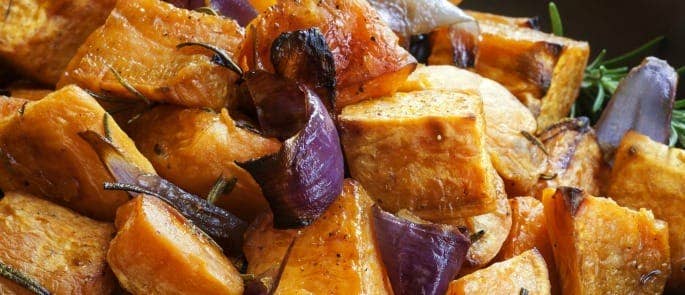
- Vegan sweetener – maple syrup or agave syrup can be used in baking or to sweeten tea and coffee.
- Fresh herbs – parsley, chives, basil, oregano etc – use herbs to add flavour and depth to your dishes.
- Berries – strawberries, raspberries, blackberries, blueberries etc- berries contain high levels of antioxidants and vitamins so are great for your health.
- Vegan cheese – a useful addition to pasta dishes, pizza or simply on wholemeal toast.
- Sweet potato – sweet potatoes are low in calories, low in saturated fats and count towards one of your 5 a day. They contain many vital minerals and vitamins.
- Whole wheat couscous – couscous is low in fat and cholesterol and a great source of carbohydrate, fibre and protein, meaning that it will keep you feeling full.
- Rice crackers – a source of carbohydrate that you can spread with peanut butter, tahini or avocado for a quick lunch.
- Olives – olives have an anti-inflammatory effect on the digestive system and are a source of healthy fat that can help to reduce cholesterol.
- Vegetable soup – a store cupboard staple that you can have for lunch or a starter to an evening meal.
Vegan Menu Ideas
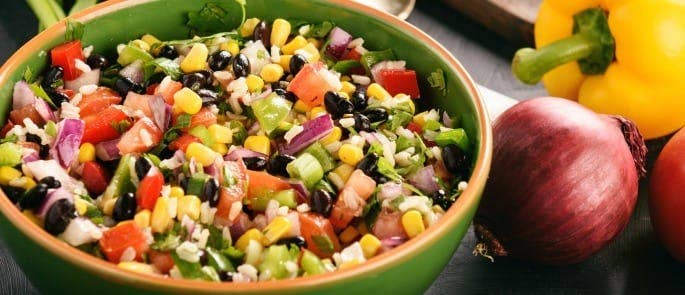
Looking for some vegan meal ideas to test out your store cupboard ingredients? Here are a few great healthy vegan meals you can try at home:
- Tofu and vegetable stir fry.
- Roasted courgette, pepper and onion pasta.
- Rice and beans.
- Chickpea curry (chana masala).
- Lentil salad.
- Pad thai.
- Pizza with vegan cheese.
- Pancakes made with soy milk and agave syrup.
- Veggie burgers.
- Bean chilli and rice.
- Minestrone soup.
- Kale and bean tacos with salad.
- Tempeh casserole.
- Three bean salad.
- Tofu lasagne.
- Spinach pie.
- Soy hot dogs.
- Quinoa salad.
- Tofu stir fry with tahini sauce.
- Okra and tomato stew.
What To Read Next:
- Starting A Vegan Street Food Business
- Food Hygiene Quiz
- 8 Vegan Myths and Facts
- A Vegetarian Diet: What Can I Eat & What are the Benefits?
- Nutrition & Healthy Eating Training


